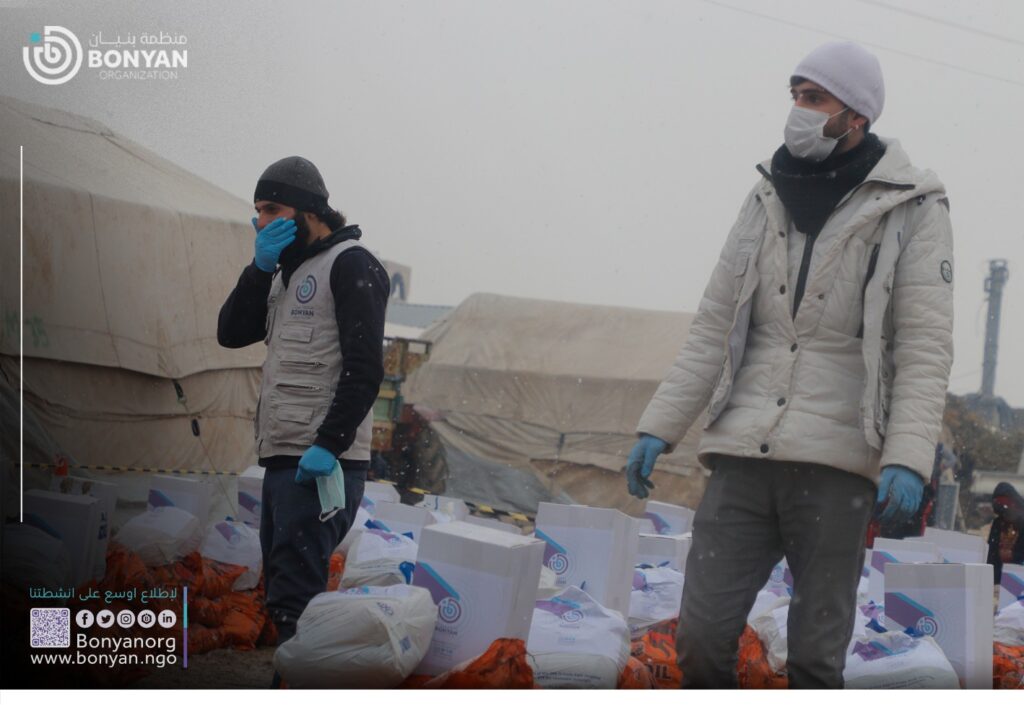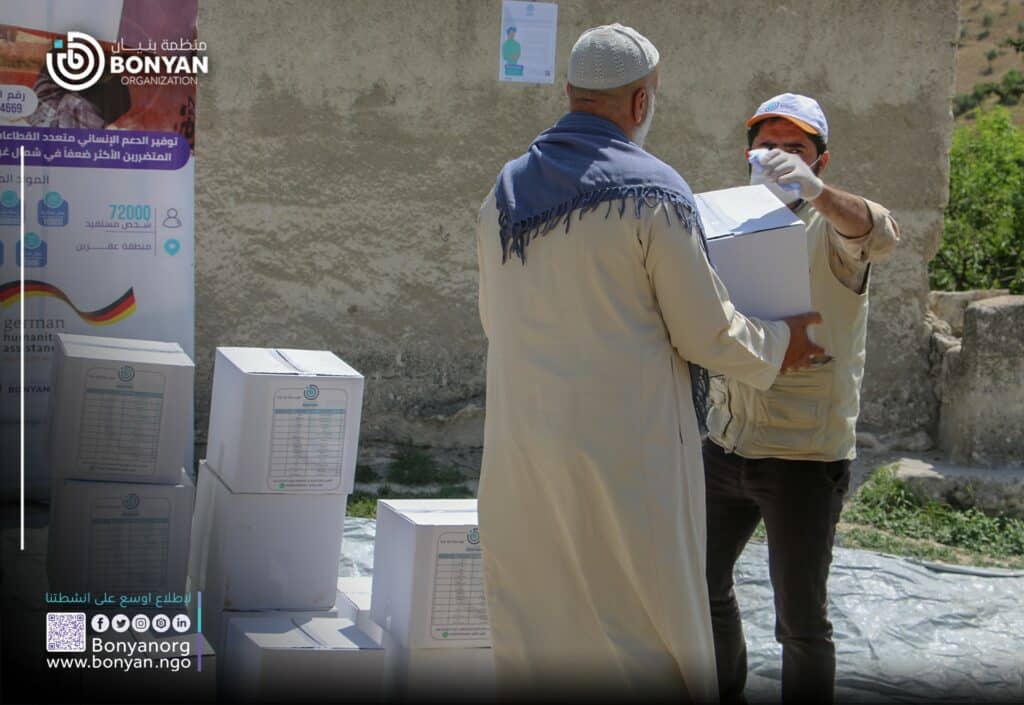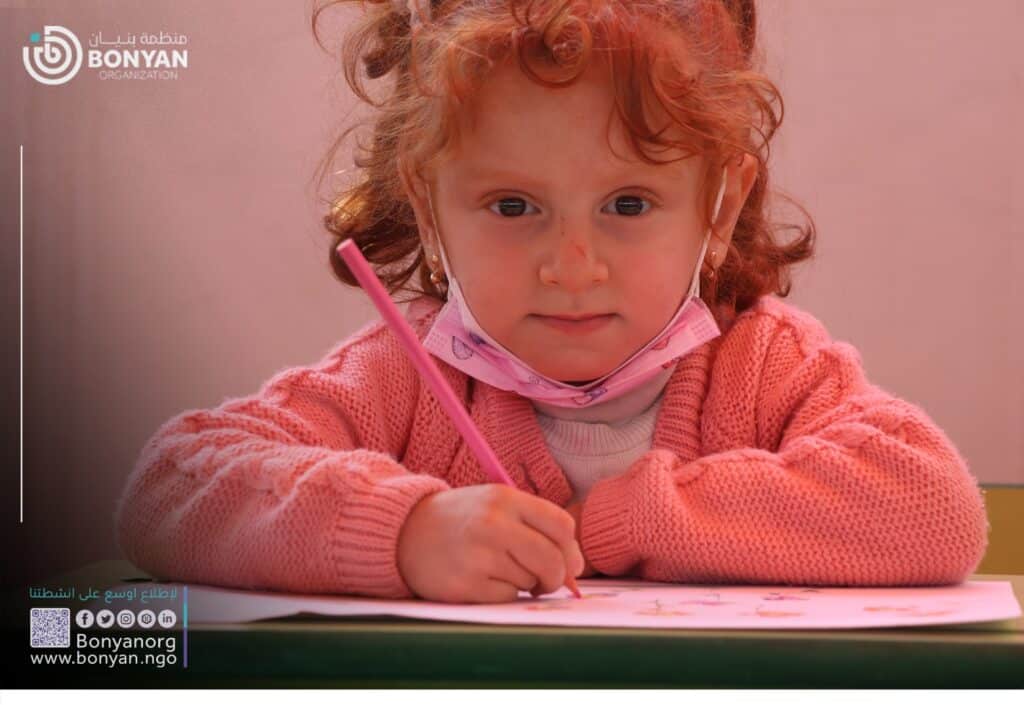As winter descends, refugees confront formidable challenges exacerbated by harsh weather conditions. This article delves into the essential needs of refugees during the winter season, shedding light on the critical items required for their well-being and survival.
Food Supplies
Refugees need important food during the winter to stay strong and healthy. This includes basic foods like rice, bulgur wheat, and pulses (like peas). They also get sugar and salt, which make the food taste better and provide necessary nutrients.
To help refugees endure the tough winter, these foods are given out every month in set amounts. This way, refugees can count on having enough to eat regularly, which is super important during the cold and difficult winter season.
This support not only keeps them fed, but also helps them stay resilient and cope with the challenges they face in winter.
Babies among refugees also require special attention to ensure their nutritional needs are met during the winter. In addition to the essential food supplies provided for adults, humanitarian aid efforts pay particular attention to baby care products and infant-friendly food.
Winter aid packages often include baby essentials such as formula milk, baby cereals, and nutritious baby food jars. These items are vital for ensuring that infants receive the necessary nutrients for their growth and development.

Cooking Sets
Cooking sets are really important for refugees in winter. They’re like survival kits that help people have food and a bit of normal life. These sets usually have things like stoves that run on diesel or charcoal, cooking pots, and utensils.
These items do more than just help make warm meals. They give displaced people and families the power to take care of themselves and be more independent, especially when it’s tough during the winter.
In the cold winter, when it’s hard to find ready-made food, cooking sets let refugees decide what they eat. They help make healthy meals, keeping people and families strong.
Not only that, but being able to cook your own food also makes you feel more at home and in control. It helps with the tough feelings that come with being forced to leave your home.
Personal Hygiene Kits
Personal hygiene kits are crucial for refugees during the winter, providing essential items to maintain cleanliness and well-being in challenging conditions.
These kits typically include items such as shampoo, bar soap, toothbrushes, toothpaste, deodorant, razors, shaving cream, and lotion.
Hygiene kits serve as a crucial line of defense, promoting dignity and well-being among displaced individuals. Additionally, these kits may include winter-specific items, such as blankets, to address the comprehensive needs of refugees in colder climates.

Clothes and Shoes
Arriving with minimal possessions, refugees encounter heightened challenges in the face of cold weather. To ensure their well-being, it is crucial to provide them with appropriate winter attire and footwear, offering both warmth and protection against the harsh elements.
Specifically, refugees navigating winter conditions need essential items such as insulated jackets, hats, scarves, gloves, thermal underwear, socks, and waterproof boots. Additionally, blankets play a vital role in enhancing warmth, particularly in temporary shelters.
Housing Solutions to Protect from Winter Weather
Ensuring refugees’ well-being during winter involves implementing housing solutions designed to withstand harsh weather conditions.
Utilizing insulated shelter structures, such as tents or prefabricated units, made from weather-resistant materials is crucial. To enhance warmth, the provision of insulation materials like thermal blankets, heavy-duty tarps, and foam boards is essential.
Additionally, integrating safe and efficient heating systems in shelters, such as wood-burning stoves, electric heaters, or portable heating units, helps combat cold temperatures. Proper ventilation is equally important to prevent the buildup of indoor air pollutants, ensuring a safe and comfortable living environment for refugees during the winter months.

Medical Aid
Winter medical aid for refugees must focus on preventing cold-related illnesses such as hypothermia and frostbite by providing adequate shelter, warm clothing, and blankets.
Respiratory infections can be mitigated through proper heating and distribution of warm clothing. Access to vaccinations, clean water, and sanitation facilities is crucial, along with nutritional support to prevent malnutrition.
Establishing medical clinics, stocking necessary medications, and offering maternal and child health services are essential, as is providing psychological support for mental health challenges. Sturdy footwear to prevent injuries, monitoring systems for early detection, and collaboration with NGOs and agencies for a comprehensive approach are key components.
Additionally, education programs and emergency medical evacuation plans should be implemented to address health risks during the winter.
Bonyan Organization’s efforts to provide the refugees’ needs in the winter
As temperatures plummet, our commitment to aiding displaced populations intensifies, with concrete results.
In our Shelter and Non-alimentary Aid Program, we’ve provided urgent shelter for over 3,500 families, offering a protective haven for vulnerable communities.
Simultaneously, our Food Security and Agriculture Program meticulously distributed winterization kits, clothes, benefiting 759,006 individuals, and implemented fire mitigation strategies to safeguard lives.
The Early Recovery and Livelihood Program focuses on rebuilding and fortifying structures for winter resilience, rehabilitating over 51,600 buildings. Bonyan’s holistic approach extends to maintaining access during harsh weather, providing crucial transportation services for Internally Displaced Persons—serving 99,350 individuals.
Donate to help the refugees in winter
Join us in weaving a blanket of warmth around those in need. Your support, with tangible impacts, not only brings immediate relief but contributes to a more robust future.
Together, we’ve nurtured resilience and inspired hope for 2,508,336 beneficiaries and counting.
FAQs
What are the primary challenges refugees face in winter?
Refugees often struggle with inadequate shelter, lack of warm clothing, limited access to heating, and increased vulnerability to cold-related illnesses.
What are the essential needs of refugees in winter?
Essential needs for refugees in winter include warm clothing, shelter, heating, blankets, food, and medical care to ensure their well-being and protection from harsh weather conditions.
What type of shelter is suitable for refugees during winter?
Adequate shelter for refugees in winter should be insulated, windproof, and equipped with heating facilities to maintain a safe and warm environment.
What healthcare considerations are important for refugees in winter?
Access to medical care for cold-related illnesses, vaccination campaigns, and provision of essential medications become critical during winter to address health challenges.
How can communities and organizations support refugees in winter?
Donations of warm clothing, blankets, heating equipment, and financial contributions to aid organizations play a vital role. Volunteers can also assist in distributing winter supplies and providing support services.
What can individuals do to help refugees during the winter?
Individuals can contribute by donating winter clothing, blankets, participating in fundraising efforts, and volunteering with organizations that support refugee populations. raising awareness about refugee needs is also valuable.
Content
- Food Supplies
- Cooking Sets
- Personal Hygiene Kits
- Clothes and Shoes
- Housing Solutions to Protect from Winter Weather
- Medical Aid
- Bonyan Organization’s efforts to provide the refugees’ needs in the winter
-
FAQs
- What are the primary challenges refugees face in winter?
- What are the essential needs of refugees in winter?
- What type of shelter is suitable for refugees during winter?
- What healthcare considerations are important for refugees in winter?
- How can communities and organizations support refugees in winter?
- What can individuals do to help refugees during the winter?




